Related Research Articles
Sergio Berlato is an Italian politician from Veneto.
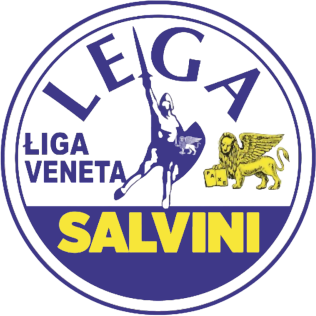
Liga Veneta, whose complete name is Liga Veneta per Salvini Premier, is a regionalist political party active in Veneto.
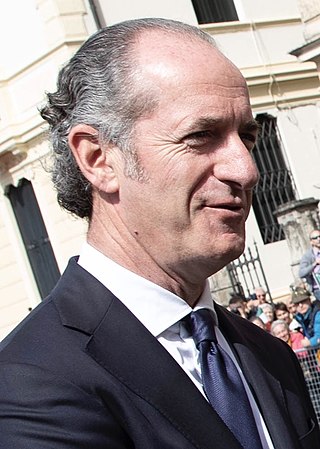
Luca Zaia is an Italian politician, who has been President of Veneto since 2010, and a historical member of Lega Nord, other than being the most progressive member of his own party. Supporter of initiatives to tackle climate change, gender-affirming surgery, the recognition of transgender people to identify with their preferred sex, and main protagonist of the fight against homophobia and antisemitism, he often rose to prominence for his positions contrasting the lines of his own party, in particular for the ones concerning the welcoming of immigrants and his model of "integrazione diffusa" of migrants coming to Europe.
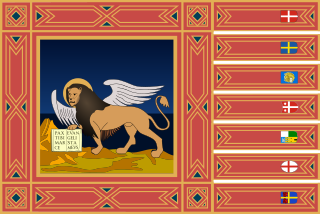
The politics of Veneto, a region of Italy, takes place in a framework of a semi-presidential representative democracy, whereby the President is the head of government, and of a pluriform multi-party system. Executive power is exercised by the Regional Government. Legislative power is vested in both the government and the Regional Council.

The VIII Legislature of the Regional Council of Veneto, the legislative assembly of Veneto, was inaugurated in April 2005, following the 2005 regional election, and ended in April 2010. Of the 60 members, 47 were elected in provincial constituencies with proportional representation with a further 12 returned from the so-called "regional list" of the elected President of Veneto, including the President himself, and the candidate for president who came second.

This page gathers the results of elections in Veneto.

The Venetian regional election of 1995 took place on 23 April 1995.

Franco Manzato is a Venetist politician. He is a member of Liga Veneta–Lega Nord.

The politics of Lombardy, a region of Italy, takes place in a framework of a semi-presidential representative democracy, whereby the President of the Region is the head of government, and of a pluriform multi-party system. Legislative power is vested in the Regional Council of Lombardy, while executive power is exercised by the Regional Government led by the President, who is directly elected by the people. The current Statute, which regulates the functioning of the regional institutions, has been in force since 2008.

The 2010 Lombard regional election took place on 28–29 March 2010. The 9th term of the Regional Council was chosen.
Giovanni Gallo is an Italian politician from Veneto.
Federico Caner is a Venetist politician from Veneto, Italy.
Stefano Valdegamberi is a Venetist politician from Veneto, Italy.
Pietrangelo Pettenò is an Italian politician from Veneto.
Lucio Tiozzo is an Italian politician from Veneto.
Piero Ruzzante is an Italian politician from Veneto.
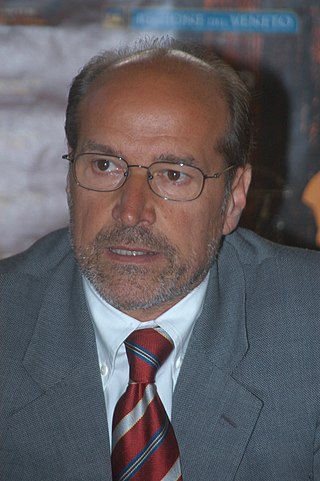
Sergio Reolon was an Italian politician from the Veneto region.
Independence We Veneto was a Venetist and separatist political party based in Veneto, Italy.
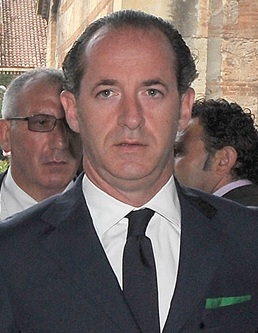
The Venetian regional election of 2015 took place in Veneto on 31 May 2015, as part of a big round of regional elections in Italy. Venetian voters elected their President and their Regional Council, whose members had been reduced to 51, including the President.

The X Legislature of the Regional Council of Veneto, the legislative assembly of Veneto, was inaugurated in June 2015, following the 2015 regional election, and ended in October 2020. Of the 51 members, 49 were elected in provincial constituencies by proportional representation using the largest remainder method with a Droop quota and open lists, while the remaining two were the elected President and the candidate for President who came second. The winning coalition won a bonus of seats in order to make sure the elected President had a majority in the Council.
References
- ↑ "Atalmi.it | Biografia". Archived from the original on 2010-09-09. Retrieved 2010-08-27.
- ↑ "Gli incarichi e le dichiarazioni di NICOLA ATALMI | openpolis".